UK 'divide and rule' backlash: Health workers plan fresh strike
Ambulance staff and other health workers who are a part of Britain's Unison trade union have announced further strike action on March 8, after being cut out of pay talks between health minister and the Royal College of Nursing (RCN).
Unison said up to 32,000 of its members working in the NHS would stage a fresh day of strike action on March 8 as a “direct result of the government’s failure to hold proper pay talks with health unions.”
“NHS workers in five unions are involved in strike action over pay, staffing and patient care,” said Unison’s general secretary, Christina McAnea. “Choosing to speak to one union and not others won’t stop the strikes and could make a bad situation much worse,” she added.
The RCN, which had been planning to escalate industrial action next week with a 48-hour walkout, put strike action on hold on Tuesday.
In a joint statement with the health ministry, the RCN announced that it had agreed to talks with ministers over pay and terms and conditions in England, adding it would suspend planned strike action while pay talks took place.
“We have just announced more strike dates in the NHS. The promise of talks alone won’t be enough for us to suspend these,” McAnea said on Twitter.
The British Medical Association, whose junior doctor members are due to walk out for 72 hours next month, said it was “very disappointed” that British health minister, Steve Barclay, had not attended a meeting between the union and health department officials on Wednesday.
“There was no offer on the table and the department made it clear they are not ready to enter negotiations,” it said.
Downing Street on Wednesday declined to comment on details of the talks between Barclay and the RCN, adding that ministers wanted a deal that was “fair for all taxpayers”.
Previous talks with Barclay have included other unions involved in NHS strike action, including Unison but also Unite and the GMB.
The GMB, which represents more than 10,000 ambulance workers, also plans to press ahead with strikes already scheduled for March 6 and 20.
Rachel Harrison, the national secretary of the GMB, responded to Tuesday’s announcement of talks by accusing the government of pursuing “divide and rule” tactics.
“This backroom deal with some sections of the workforce is a tawdry example of ministers playing divide and rule politics with people’s lives,” she said.
Unison and the GMB are concerned the government could be planning to cut a pay deal with the RCN at the expense of other NHS staff usually covered by the same wage framework.
Prime Minister Rishi Sunak's government has argued that higher pay rises would only cause more inflation and interest rates and mortgage rates to go up further. No 10 has made it a red line that the intensive phase of talks can only begin when strike action is called off.
During the past months, thousands of healthcare workers, airport baggage handlers, border staff, driving instructors, bus drivers, and postal workers have walked off their jobs in recent months to demand higher pay and to be able to cope with soaring inflation and worsening cost-of-living crisis.
February has already seen more than 500,000 people take industrial action. With public strike fatigue nowhere in sight, the walkouts are likely to continue for months.
VIDEO | 85% of Yemeni displaced people face daily hunger crisis
US House passes bill targeting charities and pro-Palestine groups
VIDEO | Supporting Gaza genocide
Hezbollah attacks Israeli forces after Lebanese homes blown up
World leaders, states hail ICC arrest warrants for Netanyahu, Gallant
MP: US accountable for possible Israeli 'foolishness' to attack Iraq
VIDEO | Israeli policies strangle Palestinian agriculture, economy
Iran's president offers condolences to Pakistan over terrorist attack


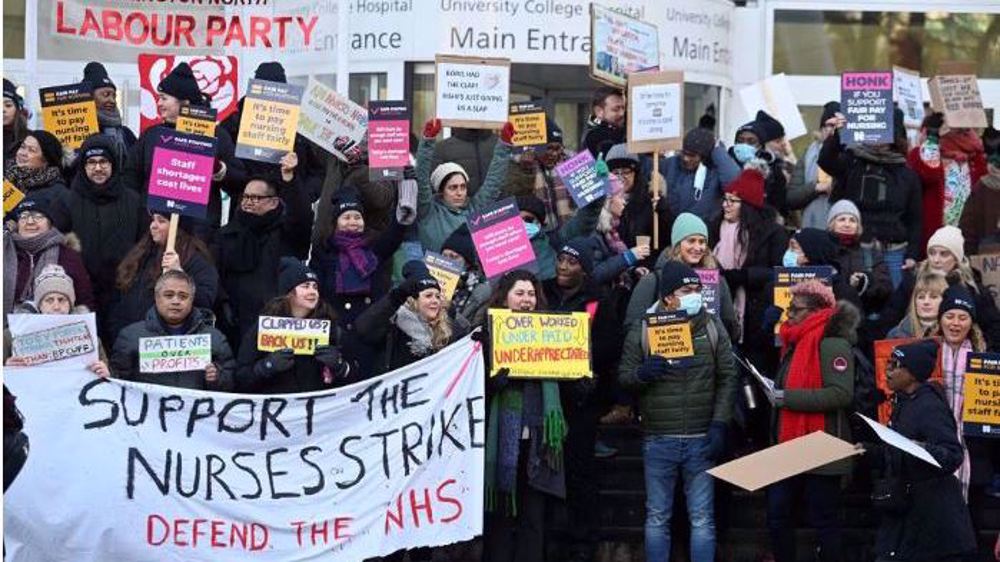
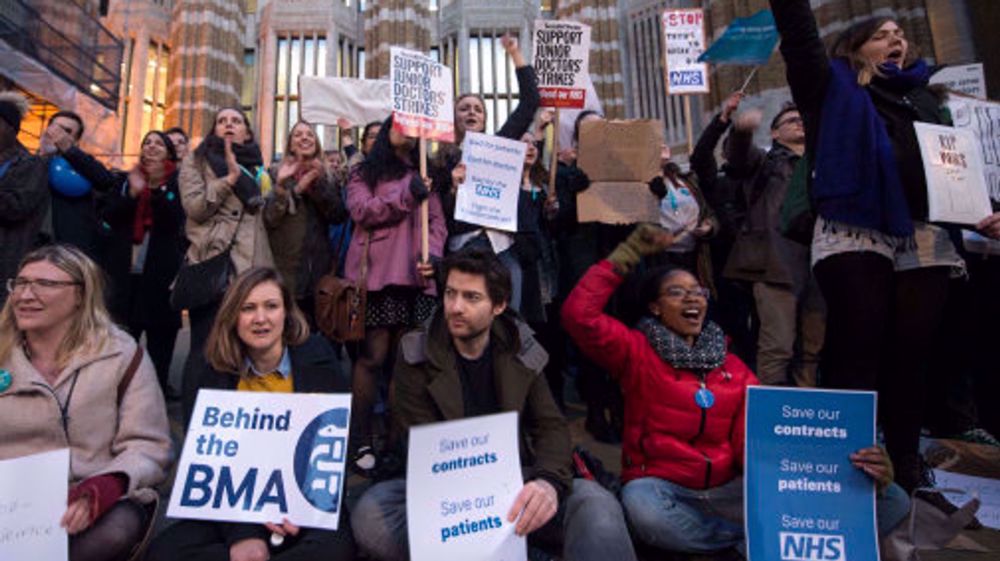
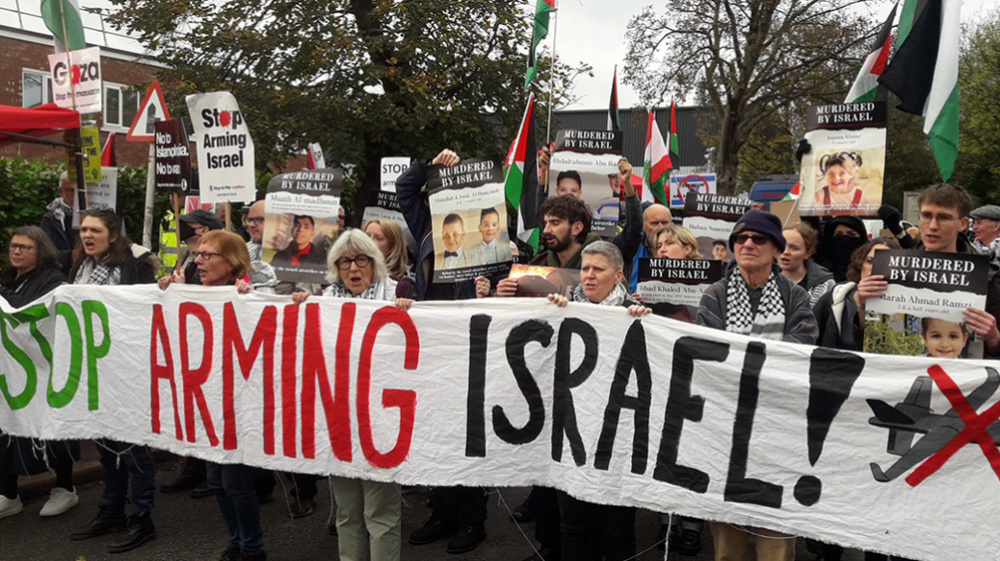
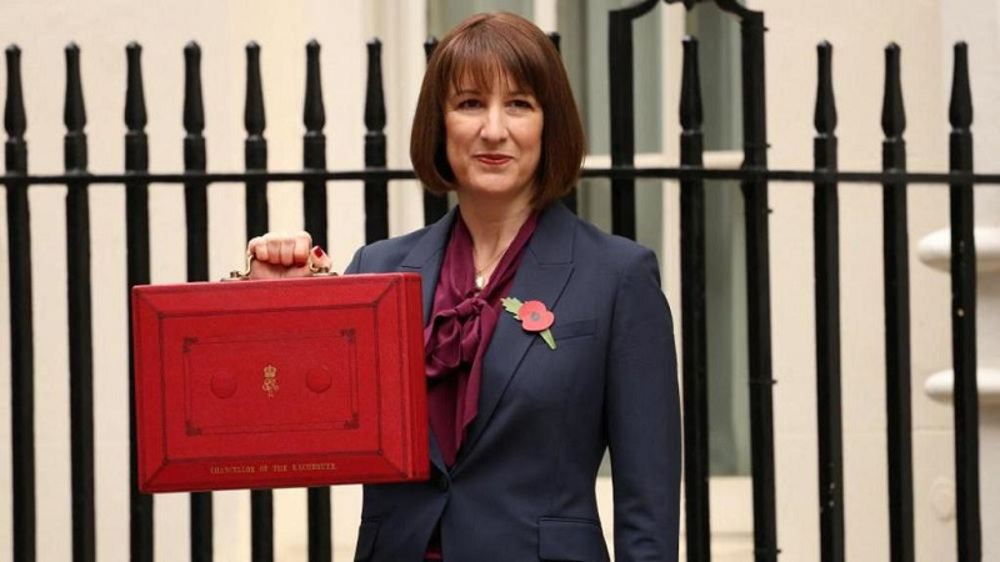
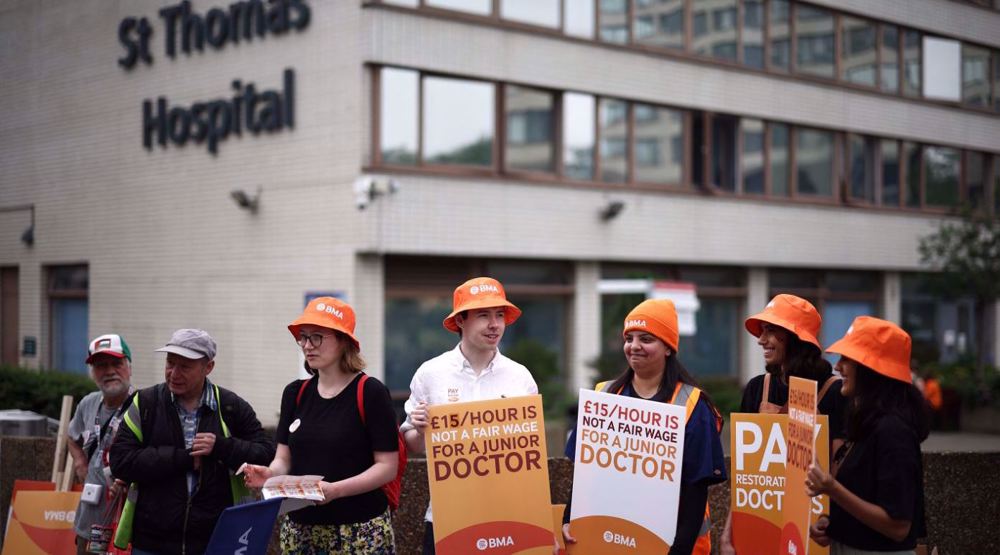



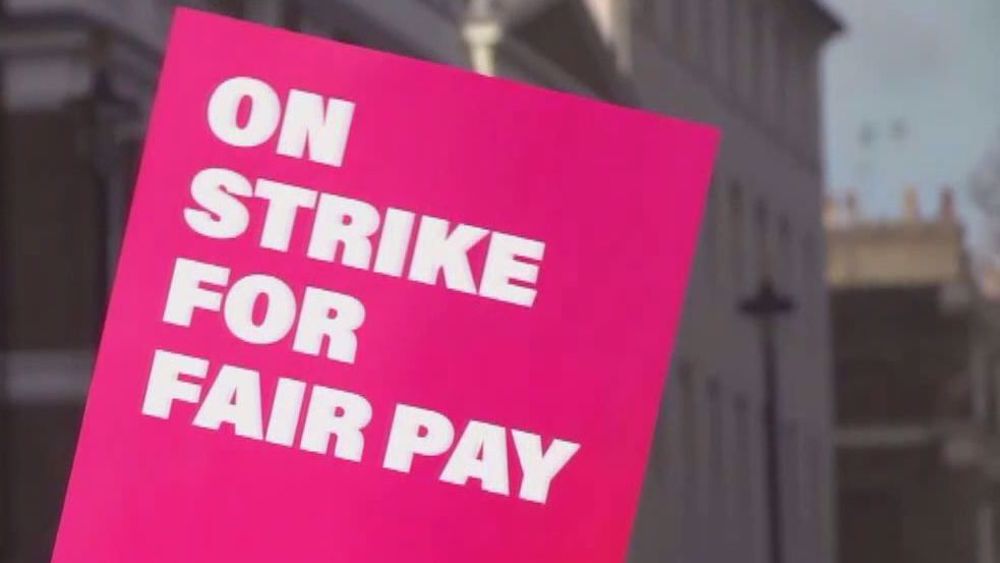

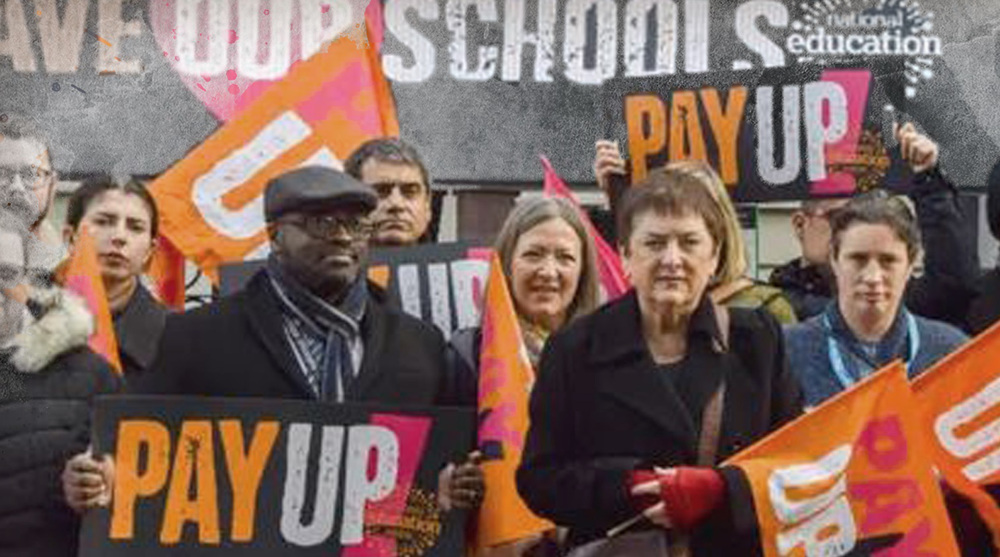

 This makes it easy to access the Press TV website
This makes it easy to access the Press TV website